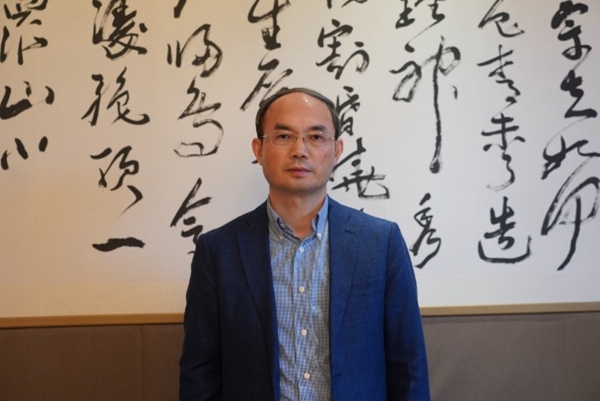
Chinese Ambassador to Belgium Cao Zhongming [Photo provided to China.org.cn]
As of today, no confirmed cases have been found among the Chinese students in Belgium, stated Chinese Ambassador to Belgium Cao Zhongming during an exclusive interview with China.org.cn on April 20.
A total of 40,956 cases have been reported with 5,998 deaths in Belgium as of Wednesday afternoon, according to the Center for Systems Science and Engineering at Johns Hopkins University.
The Chinese Embassy in Belgium attaches great importance to the health and safety of Chinese nationals in the country.
"We set up a 24/7 hotline for consular protection and emergencies," explained Cao, "Safety notices, information and personal protection tips are posted and updated on our website as well as social media accounts such as WeChat. I've also had teleconferences with representatives of overseas Chinese, students, and expatriates at Chinese companies."
"Besides remote consultations, we also advocated for the establishment of a medical team comprising of overseas Chinese doctors so that they could provide services to those in need of urgent consultation or medical assistance," Cao said. "We also sourced and sent protective materials and medicine to Chinese students in Belgium to help them through the difficult times and mitigate their anxieties."
In the meantime, the embassy is maintaining close communication with the Belgian federal foreign affairs and public health authorities to facilitate information sharing regarding such issues as joint prevention and control, and reducing cross border transmission.
The embassy put Belgian medical groups in contact with their Chinese counterparts to exchange experience on treatment and preventive measures.
"We support Chinese sub-national governments and Chinese companies in extending a helping hand to Belgium, and the embassy is working to facilitate medical procurement in China," said the ambassador.
Recently, some elements in the U.S. have been deliberately blaming the epidemic on China and trying to stigmatize China's efforts in an attempt to shirk responsibility.
"Naming new viruses is a professional and scientific matter. The WHO has clear rules for this and one of the principles is avoiding discrimination and stigmatization, whilst avoiding association with a certain place or people," Cao said.
The ambassador continued, "Governments have an obligation to use the correct name and communicate it to the public. Erroneously tagging a certain country or region only serves certain political motivations, shifts the blame and deflects attention. It does nothing to help defeat the virus."
As for some individual cases of discrimination, the embassy has lodged complaints with the Belgian authorities. The embassy encourages and supports Chinese nationals in Belgium to stand together against such misbehavior while ensuring their own safety. The Belgian government has vocally expressed their opposition to discriminatory practices.
"We think that the great majority of local people are rational, friendly and cordial," he underscored, "Discrimination only occurs singularly."
"Viruses know no borders and are the common enemy of mankind. No country can fight this virus alone or stay out of it," he said, "Curbing the spread of COVID-19 and winning this battle is the goal shared by all countries."
All of us must shoulder the responsibility to protect the safety and health of people across the world, he urged.
Cao explained that the battle is not about one city or country. Rather, it is about safeguarding global public health, people's welfare and world prosperity. Coping with the virus effectively is a complicated and daunting task. Only by working together and putting up a joint fight can we succeed.
Some say the disease will turn the tide against globalization. "I believe that the very opposite will happen," Cao said, "Reflections upon international response efforts will lead globalization forward in a more sound and orderly manner, bringing benefits to more people."
"Globalization is almost an unstoppable force of nature. It could be accelerated or deferred, but never reversed. After the epidemic is over, people will come to a greater recognition that the world is an interconnected whole with a shared future. Only multilateralism and international cooperation will help us deal with mankind's common problems and challenges," the ambassador concluded.




